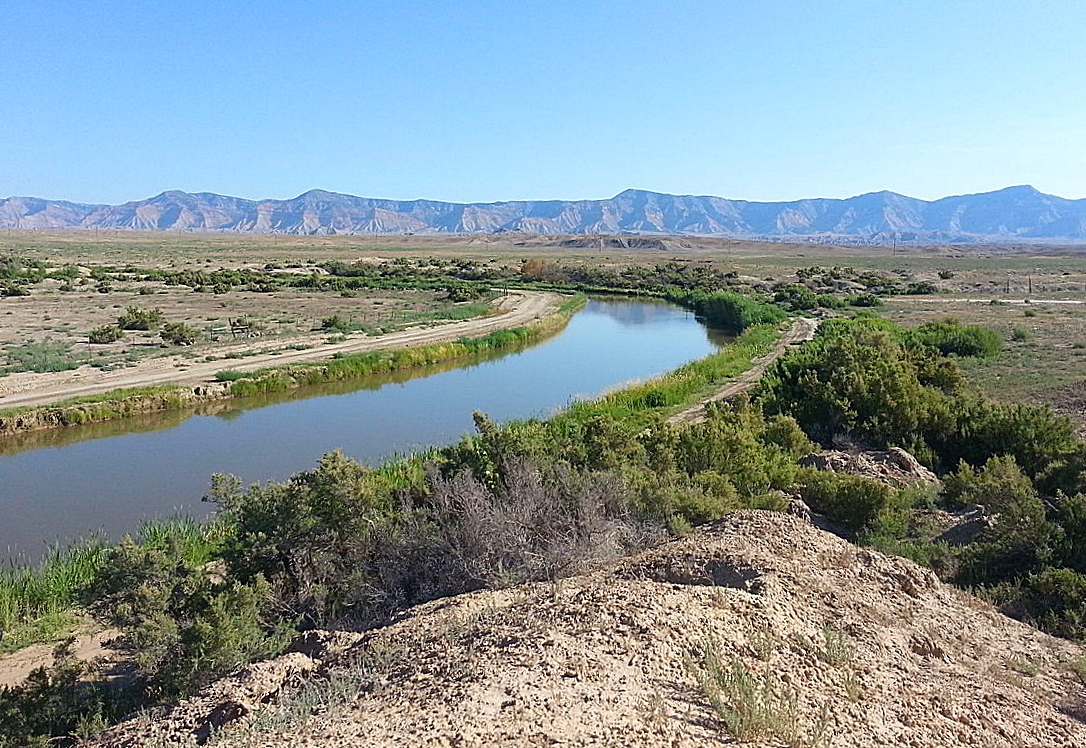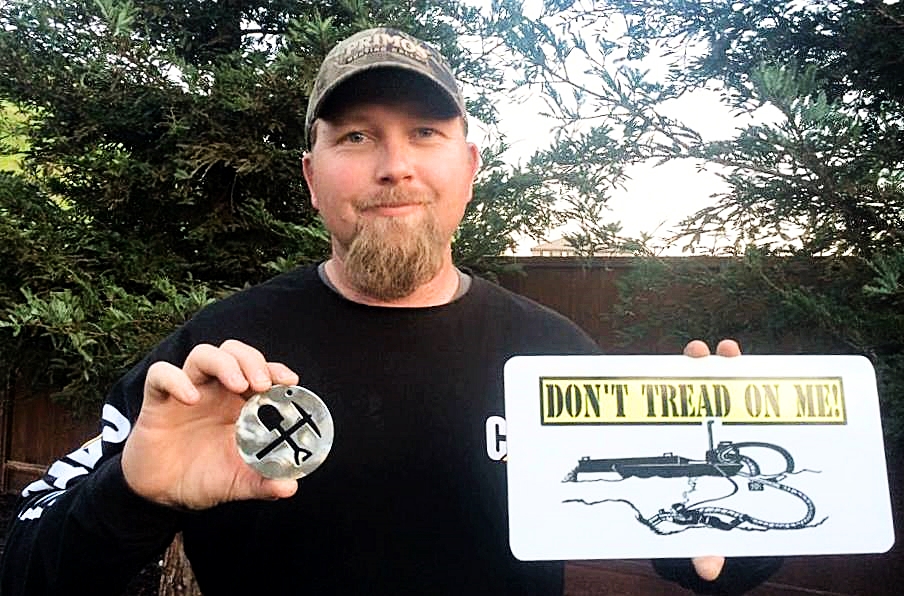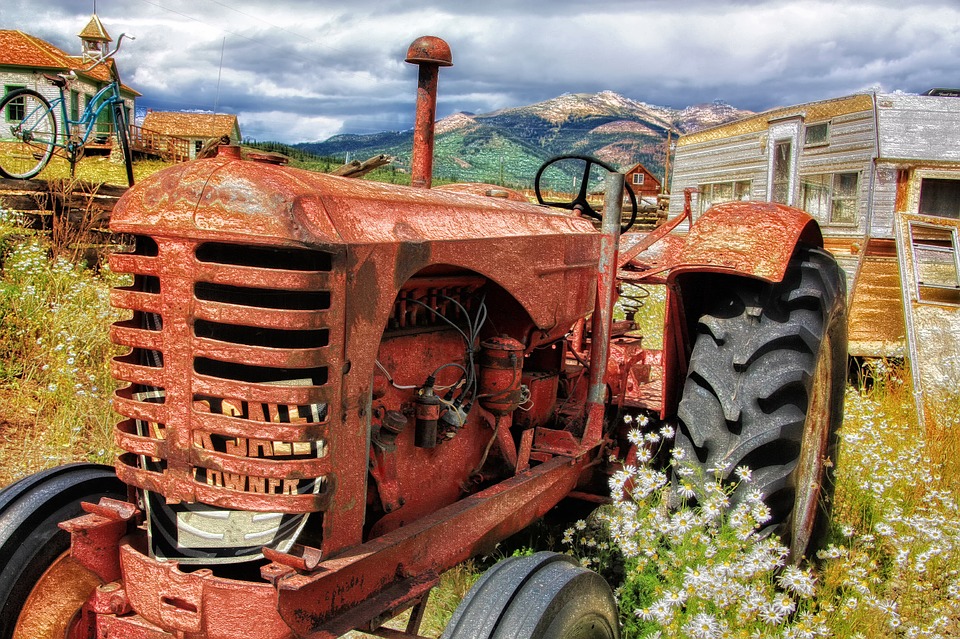“The water districts all signed an agreement not to use the canal roads but the City has it in its long term budget. They, water associations, will say one thing to the public and then do exactly the opposite!”
by Marjorie Haun
Colorado, with increasing progressive pressures from within and without, is unfortunately abandoning its natural-resources based economy for one based on industrial tourism, pot, and big tech. Even its conservative rural counties are moving left, pitting private interests against government powers when it comes to who controls lands and resources. One plan to use canal roads and maintenance easements, owned by various private citizens and business, to satisfy local demands for recreation opportunities, appears to be flying under the radar in Mesa County.
Holly Cremeens, a farmer and blogger who reports about water rights issues in Western Colorado, is speaking out about a proposal by the Grand Junction City Council (GJCC) that would define privately-held canal roads as “urban trails.”
According to Holly, “The water districts all signed an agreement not to use the canal roads but the City has it in its long term budget. They, water associations, will say one thing to the public and then do exactly the opposite!”
Holly is a shareholder in the Grand Valley Water User’s Association (GVWUA), and is alarmed by the recent developments and believes she and others in the organization were overlooked by the GJCC when they formulated their “Urban Trails Master Plan.” Holly reached out in a letter to the Mesa County Board of Commissioners for assistance in dealing with this apparent overreach on the part of GJCC. She wrote:
Dear Commissioners,
The City of Grand Junction is counting on using canal and drainage roads as urban trails. As a shareholder in the GVWUA and Redlands Water and Power, I am angry that this is being done without the knowledge and input of the shareholders. The link I am providing shows what is going on and how the Board of County Commissioners is being left out of the process.
Page 2 – 2018-0032 MP Grand Junction Circulation Plan- shows that it is not going before your Board.
Page 329 – •2001 Urban Trails Master Plan- The City of Grand Junction last adopted an Urban Trails Master Plan in 2001 and the Mesa County Board of County Commissioners retired it in April 2014, leaving a plan that is limited, outdated and only implemented within the city limits of Grand Junction. The Urban Trails Master Plan defines the type and locations of non-motorized transportation corridors in the Grand Junction urban area, as well as on-street bicycle and pedestrian facilities. Rather than update the Urban Trails Master Plan, it is being incorporated into this Plan, which will provide more direction, priorities, policies and implementation strategies.
Page 345 – RESOLUTION NO. MCPC 2018-01 Planning Department No. 2018-0032 MP
I believe this plan uses private property without the consent of the owners. Notice should be given to all the shareholders of The Grand Valley Water Users Association, Grand Valley Irrigation, Palisade Irrigation, Mesa County Irrigation, Stubbs-Price Ditch and Redlands Water and Power. The ditch roads and drainage roads also cross through private land that will be impacted and as a land owner I want my private property rights protected and don’t want to see a precedent set for usurping more private property rights in the future.
As of the writing of this article, Holly has not yet received responses from either the GJCC or the Mesa County BOCC.
See the full planning document here
Holly is one of a handful of water rights activists fighting various entities in western Colorado, official and unofficial, to keep historical water rights in the hands of rightful holders. In March of last year we reported on the Mesa County “water banking” program devised by groups including the land-grabbing Nature Conservancy. Holly’s research was key to the information in that article, which opens:
One savvy western Colorado farmer is shining light on what may be a water rights-grabbing scam in the Grand Valley. Holly Cremeens has been tracking a program which has been giving property owners large cash sums if they will agree to ‘fallow’ their croplands, thus ‘banking’ (not using) the water to which they have rights, for a given period of time. The term ‘banking’ is misleading, because the water is not stored but simply continues to run downstream in the Colorado River to Utah (Lake Powell), Arizona and eventually, California. One might argue that property owners; farmers, ranchers, manufacturers, municipalities, etc., have the option NOT to use the water to which they have existing rights. But the danger in ‘banking’ or similar programs is that the status of rights depends on the water being put to beneficial use. If the water is not put to beneficial use, or its consumption is gradually decreased over time, the property owner could lose his rights to previously allocated amounts of water.
Holly Cremeens is one of several property owners comprising the Grand Valley Water Users Association (GVWUA), and is concerned that the ‘banking’ program, or Conserved Consumptive Use Pilot Project (CCUPP), is a backdoor mechanism to transfer water and existing water rights away from Grand Valley property owners to special interest groups inside and outside of Colorado…
Free Range Report
Thank you for reading our latest report, but before you go…
Our loyalty is to the truth and to YOU, our readers!
We respect your reading experience, and have refrained from putting up a paywall and obnoxious advertisements, which means that we get by on small donations from people like you. We’re not asking for much, but any amount that you can give goes a long way to securing a better future for the people who make America great.
[paypal_donation_button]
For as little as $1 you can support Free Range Report, and it takes only a moment.



